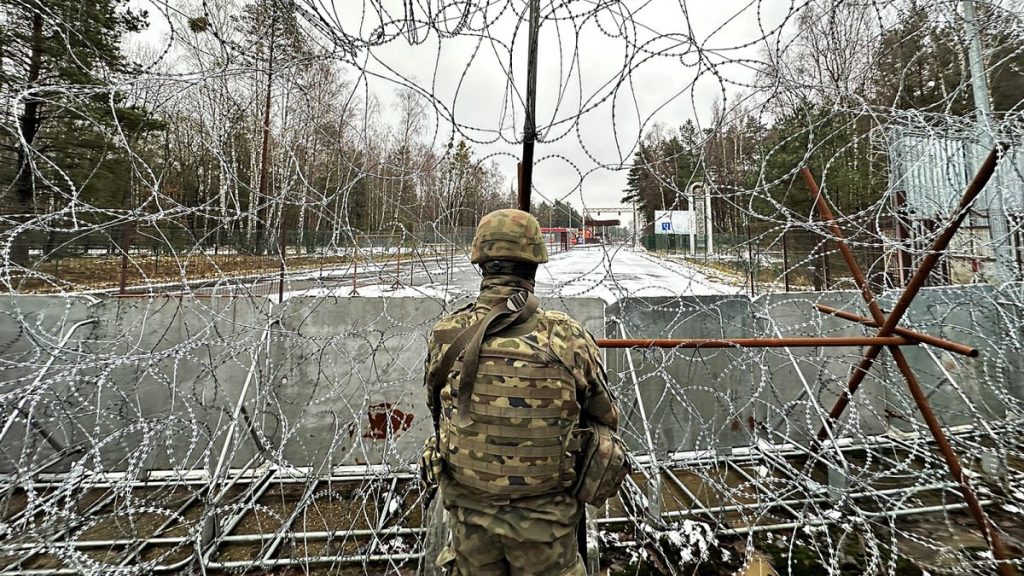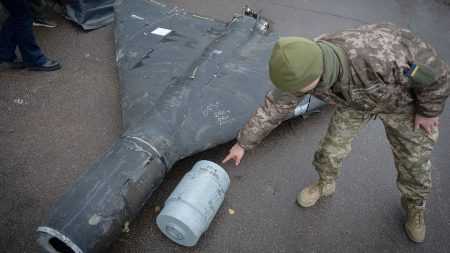Poland’s assertive stance on migration, framing it as a national security threat orchestrated by Belarus and Russia, has significantly reshaped the EU’s approach to border control. The fortified border with Belarus, complete with fences, surveillance technology, and military presence, underscores Poland’s perception of a hybrid warfare campaign utilizing migrants as pawns. This narrative, born from the sudden influx of asylum seekers from distant countries via Belarus, contrasts sharply with traditional European views of migration as a socio-economic issue. Poland attributes the surge in arrivals to a deliberate strategy by Belarus, possibly with Russian backing, to destabilize the EU in retaliation for sanctions. The Polish government contends that the orchestrated nature of these migrant flows, facilitated by Belarusian authorities and involving substantial sums of money paid by the migrants, distinguishes this situation from typical migration patterns.
The militarization of the Polish border, part of a broader initiative called the “East Shield,” reflects the intertwining of migration and security concerns. While Poland insists the “East Shield” is primarily a defense strategy against potential military aggression, the heavy deployment of troops along the Belarusian border demonstrates the blurred lines between these two issues. This conflation of migration with national security has allowed Poland to justify stricter border measures, including controversial pushbacks of migrants, despite criticism from human rights organizations. The fluctuating intensity of attempted border crossings, influenced by political events and seasonal changes, fuels Poland’s sense of a perpetual threat requiring constant vigilance. This perceived unpredictability strengthens Warsaw’s argument for exceptional measures to protect its borders.
The methods employed by Belarus to facilitate migrant crossings, including providing visas, transportation, and instructions on breaching Polish territory, further solidify Poland’s claims of a deliberate campaign. The involvement of Ukrainian nationals as “facilitators” adds another layer of complexity to the situation. The alleged provision of “dangerous tools” to migrants by Belarusian services further escalates tensions and justifies, in Poland’s perspective, the increased militarization of the border. The death of a Polish soldier at the border has also contributed to the hardening of attitudes and the easing of restrictions on the use of firearms by border guards.
While Poland claims success in curbing illegal crossings due to the reinforced border, human rights organizations accuse Polish authorities of systematic pushbacks, denying migrants access to asylum procedures and violating international law. These organizations document instances of violence, intimidation, and coercion of migrants by both Polish and Belarusian authorities. Poland, however, defends its actions as “turnbacks” conducted within its legal framework, primarily targeting those apprehended in the immediate border area. This clash of narratives highlights the deep divide between security concerns and humanitarian obligations at the heart of the EU’s migration challenge.
Poland’s framing of the migration issue as a security crisis has gained traction within the EU, influencing policy discussions and shifting the focus from humanitarian concerns to border protection. Traditionally, European migration debates centered on socio-economic integration, human rights, and burden-sharing. However, Poland’s narrative, amplified by the backdrop of the war in Ukraine, has effectively reframed the issue as a matter of national security requiring exceptional measures. This shift is evident in the EU’s increasing emphasis on border security, reflected in policy documents and statements by high-ranking officials.
Poland’s successful reframing of the migration debate culminates in its EU Council presidency program, themed “Security, Europe!” which explicitly lists migration as a security dimension. This solidifies Poland’s influence on the EU’s approach to migration, marking a departure from traditional perspectives and prioritizing border control and security considerations over humanitarian concerns. Despite criticism from human rights organizations, Poland’s stance has found resonance within the EU, effectively reshaping the bloc’s response to migration challenges and potentially setting a precedent for other member states facing similar situations. The long-term consequences of this policy shift, including its impact on human rights and the future of asylum in Europe, remain to be seen.










